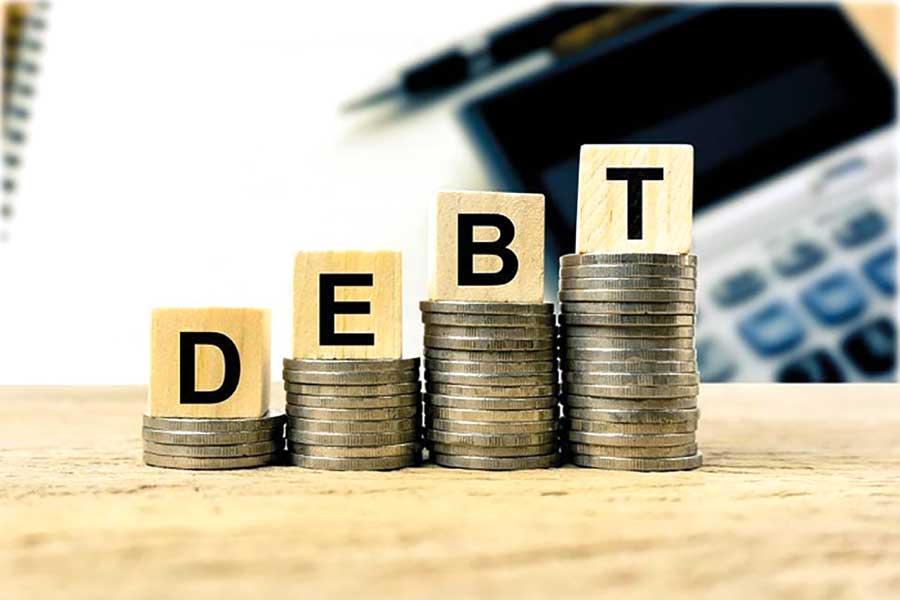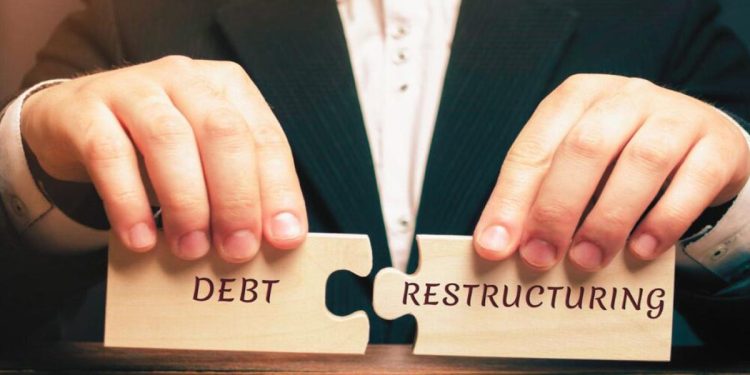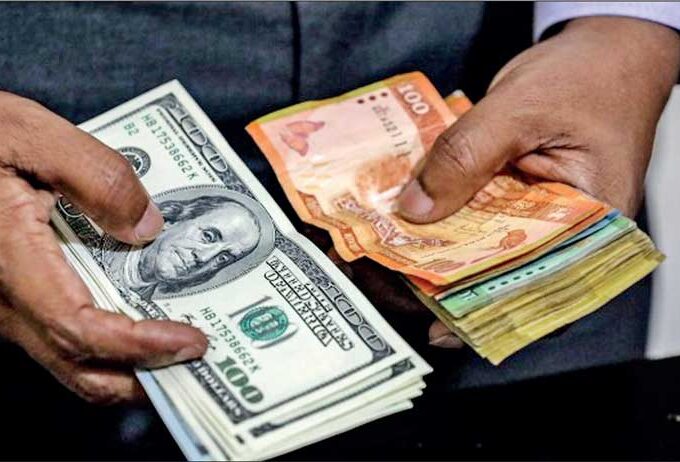Sri Lanka’s bondholders to get repaid 20%-45% more than governments
- Summary
- If the July 2024 agreement goes through, Sri Lanka’s bondholders will get repaid 19% more than
bilateral creditors such as China, Japan, and India (in the baseline deal). If bondholders get more
through the ‘upside deals’, they will get 28%-46% more than bilateral creditors. - In total bondholders are set to be repaid 80 cents (in the baseline deal). Depending on Sri Lanka’s
economic growth between 2024 and 2027, this could go as high as 98 cents and as low as 70
cents - The debt relief being considered acceptable by the IMF will leave Sri Lanka paying twice as much
as Zambia, as a proportion of government revenue, and leave Sri Lanka trapped with some of the
highest external debt payments in the world for years to come - The July 2024 deal is slightly better for Sri Lanka than the proposal made by bondholders in April
2024, but significantly worse than Sri Lanka’s proposal from April 2024
2. Bondholder restructuring
On 3 July the Sri Lankan government announced it had reached an agreement to restructure debt payments on its International Sovereign Bonds with committees representing many of the bondholders. The agreement must still be decided as acceptable by bilateral creditors and the IMF. If it is, it will be put to a vote of all the bondholders.
Under the baseline deal, there will be:
- a 28% reduction in the amount of principal owed
- an 11% reduction in the defaulted interest
- A $225 million fee is to be paid when the restructuring is concluded in 2024
- Interest rates of 3.5%-5.5% for the next eight years, rising to 8.75%-9.75% from 2033 on
- Repayment of the defaulted interest from 2024 to 2028, then the main principle from 2029 to
2036
If Sri Lanka’s GDP is higher than the IMF expects from 2025-2027, then more principal is repaid, and
the interest rate increases. If GDP is lower, then less principal is repaid. We estimate, using the concept of net present value, with a discount rate of 5%, that bondholders will effectively be repaid the following amounts compared to the amount originally lent:
| Scenario | Original amount lent | Net present value of new payments | Amount bondholders will receive for every $1 lent |
| Baseline | $12,550 million | $9,996 million | 80 cents |
| GDP 4% higher | $12,550 million | $10,836 million | 86 cents |
| GDP 8% higher | $12,550 million | $11,822 million | 94 cents |
| GDP 8% higher | $12,550 million | $12,303 million | 98 cents |
| GDP 2% lower | $12,550 million | $9,364 million | 75 cents |
| GDP 4% lower | $12,550 million | $9,364 million | 75 cents |
| Net Present Value Net present value is a way of calculating debt owed including the interest and principal payment schedule. The concept is based on the idea that the same nominal payments in the future are worth less than now. The reason why future payments are worth less is different depending on whose perspective a deal is looked at, but include inflation, economic growth and where else the money could have been invested. The IMF uses a discount rate of 5%, which means a debt payment is worth 5% less each year into the future it is made. We have used the 5% rate in our calculations. |

3. Bilateral restructuring
It has been reported that the restructuring agreement with bilateral creditors is likely to involve:
- No reduction in the principal amount owed
- No repayments until 2028, then the principal will be repaid from 2028 to 2042
- An interest rate of 2%
According to the IMF, $11.4 billion of bilateral debt was owed at end-2022.We estimate that with the restructured payment schedule, the Net Present Value of the external debt will be $7.7 billion, calculated from end-2022. This is estimated assuming: - No payments in 2023
- 2% interest paid on outstanding principal for half of 2024
- 2% interest paid on outstanding principal from 2025 to 2042
- Principal repayments of equal amounts each year from 2028 to 2042 ($761 million a year)
- A discount rate of 5% (ie, every year into the future, repayments cost Sri Lanka effectively 5%
less).
A Net Present Value of $7.7 billion would mean that for every $1 lent, bilateral creditors would
effectively be repaid 67 cents ($7.7 billion / $11.4 billion).
4. Comparison between bondholders and bilateral
Below we show how the agreement with bondholders compares with the deal with bilateral
creditors, and previous proposals from the Sri Lankan government and bondholders:
| Restructuring proposal | Amount of nominal debt owed, end 2022 (ie, amount lent) | Estimate of Net Present Value following restructuring proposal | Estimate of effective amount creditor will get back for every $1 lent |
| Bilateral creditors | $11,400 million | $7,700 million | 67 cents |
| Bonds agreement July 2024,baseline | $12,550 million | $9,996 million | 80 cents |
| Sri Lanka April 2024 proposal to bondholders (baseline) | $12.550 million | $9,270 million | 74 cents |
| Bondholders March 2024 proposal (baseline) | $12,550 million | $12,100 million | 96 cents |
| Bondholders April 2024 proposal (baseline) | $12,550 million | $10,340 million | 82 cents |
Sri Lanka debt external debt owed, end-2022, including arrears from missed interest payments from April 2022 on2
| Creditor | Amount owed |
| Multilateral | $11.49 billion |
| Asian Development Bank | $5.97 billion |
| World Bank | $3.84 billion |
| IMF | $1.06 billion |
| Other | $0.62 billion |
| Bilateral | $11.42 billion |
| China | $4.48 billion |
| Japan | $2.83 billion |
| India | $1.83 billion |
| Other Paris Club | $1.96 billion |
| Other non-Paris Club | $0.32 billion |
| Private | $18.56 billion |
| Bonds | $13.36 billion |
| China Development Bank | $2.9 billion |
| Other private included in restructuring | $0.26 billion |
| Central bank currency swaps (not included in restructuring) | $2.04 billion |
3. IMF aims for debt restructuring
At the start of its 2023 loan program with Sri Lanka, the IMF set out a range of aims for Sri Lanka’s debt restructuring. Analysis of the IMF’s program documents shows that these will mean Sri Lanka’s external debt payments will still be well over 20% of government revenue for at least the next decade, peaking at 29% of government revenue in 2028.3 This is higher than the threshold the IMF says it is sustainable for other lower-income countries (14%-23% of revenue spent on external debt payments) and higher than is being targeted in other debt restructurings. It is also higher than the debt payments of the vast majority of lower-income countries. We assume the July bondholder proposal and bilateral restructuring together are consistent with these future external debt payments for Sri Lanka.
IMF predictions for Sri Lanka external debt payments post-restructuring
| Foreign currency debt service as percentage of GDP | Government revenue as a percentage of GDP | External debt service as percentage of government revenue | |
| 2023 | 1.7 | 10.1 | 16.8 |
| 2024 | 2.8 | 12.9 | 21.7 |
| 2025 | 3.4 | 14.9 | 22.8 |
| 2026 | 4.4 | 15 | 22 |
| 2027 | 4 | 15.1 | 26.5 |
| 2028 | 4.4 | 15.2 | 28.9 |
| 2029 | 4.4 | 15.2 | 28.9 |
| 2030 | 4.3 | 15.2 | 28.3 |
| 2031 | 4.3 | 15.2 | 28.3 |
| 2032 | 4.2 | 15.2 | 27.6 |
| 2033 | 4.2 | 15.2 | 27.6 |
| Average 2024-2033 | 3.9 | 26.3 |
[NB. The IMF documents do not have government revenue figures for 2029, so for these calculations we have assumed it remains at 15.2% of GDP]
To be able to keep making these high debt payments, the IMF says Sri Lanka must have a primary budget surplus of 2.3% of GDP for at least the next decade.4 This means that for every $7 the Sri Lankan government gets in tax revenue, only $6 will be spent on public services and other spending by the government.
The IMF program expects Sri Lanka to start borrowing foreign currency external bonds again from 2027, with $1.5 billion being disbursed in 2027.5
- https://asia.nikkei.com/Spotlight/Sri-Lanka-crisis/Sri-Lanka-s-debt-repayments-to-be-suspended- until-2028 ↩︎
- https://www.imf.org/en/Publications/CR/Issues/2023/03/20/Sri-Lanka-Request-for-an-Extended-Arrangement-Under-the-Extended-Fund-Facility-Press-531191 ↩︎
- http://Calculated by Debt Justice from https://www.imf.org/en/Publications/CR/Issues/2023/12/12/Sri-Lanka-First- Review-Under-the-Extended-Arrangement-Under-the-Extended-Fund-Facility-542441 ↩︎
- http://The primary budget surplus measures how much a government is spending compared to how much revenue it is receiving, not including interest payments. ↩︎
- https://www.imf.org/en/Publications/CR/Issues/2023/03/20/Sri-Lanka-Request-for-an-Extended-Arrangement-Under-the-Extended-Fund-Facility-Press-531191 ↩︎














Leave a comment